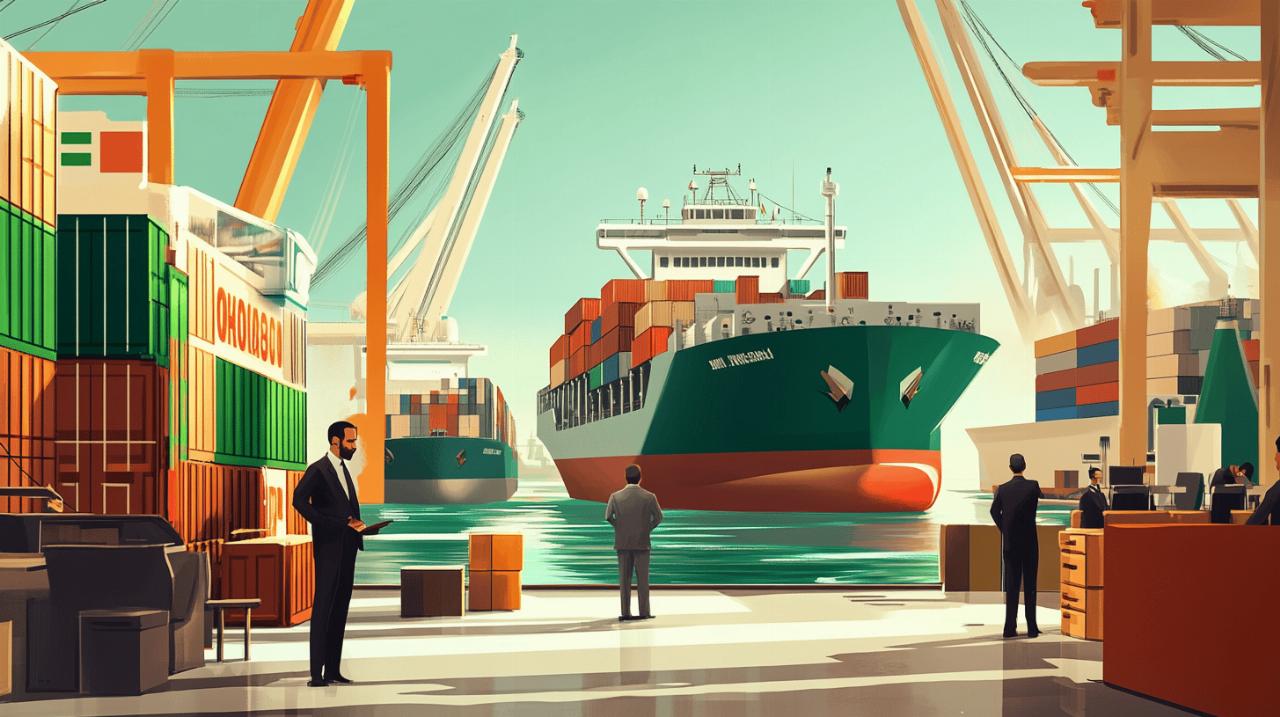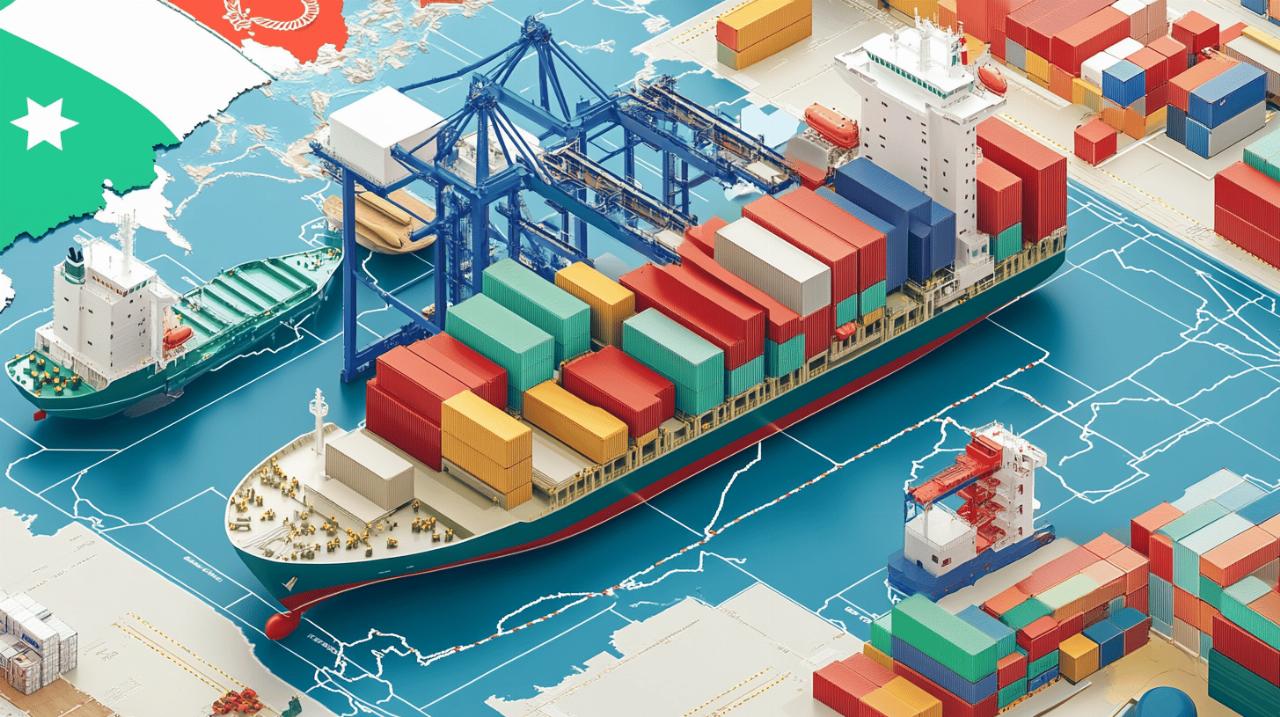Transport Infrastructure Insights for Comment creer une entreprise import/export en Algerie? – MSI PME
Starting an import/export business in Algeria presents exciting opportunities for entrepreneurs looking to connect global markets with this North African nation. However, navigating the process requires understanding specific legal requirements, market conditions, and logistical considerations. This guide walks you through the essential steps to establish your import/export venture successfully in the Algerian market, from initial planning to operational logistics.
Essential market research and business planning
Before diving into the Algerian import/export sector, comprehensive market research is absolutely crucial. Understanding the local economic landscape, trade regulations, and consumer demands will provide the foundation for a successful business. The Algerian market has unique characteristics that differentiate it from other North African economies, making thorough research all the more important for identifying viable opportunities.
Identifying Opportunities in the Algerian Import/Export Sector
Market research begins with identifying gaps in the Algerian marketplace that your business can fill. Look at current import trends to spot products in high demand that might face supply constraints. Similarly, investigate locally produced goods that might have export potential in foreign markets. Analyse your competitors thoroughly – understand their strengths, weaknesses, and market positioning to carve out your unique selling proposition. This competitive intelligence allows you to develop strategies that differentiate your business in a sometimes crowded marketplace.
Developing a Comprehensive Financial and Operational Strategy
A well-structured business plan serves as your roadmap to success. It should articulate your vision, mission, and concrete objectives. Detail your target market segments, pricing strategy, and marketing approach. Create realistic financial projections including startup costs, operational expenses, and revenue forecasts for at least three years. Your operational strategy must address inventory management, supplier relationships, and distribution channels. Securing adequate funding is another crucial aspect – whether through personal savings, bank loans, or potential investors. The financial aspects might seem tedious, but they form the backbone of your enterprise and deserve meticulous attention.
Legal registration process for import/export businesses
Registering your business in Algeria involves several administrative steps that must be followed meticulously. The process might seem complex, but each step exists to ensure proper business governance and regulatory compliance. Patience and attention to detail during this phase will prevent complications later.
Required Documentation and Procedures with the CNRC
The Centre National du Registre du Commerce serves as the primary registration authority for businesses in Algeria. The application process requires submitting detailed information about your company structure, shareholders, directors, and registered address. Prepare your business plan, articles of association, and proof of address in advance. Upon approval, the CNRC issues an extract of trade register that officially validates your business existence. Registration fees vary based on your business type and capital, so budget accordingly for these administrative costs. The documentation needs to be comprehensive and accurate to avoid rejection or delays.
Obtaining tax identification and social security registration
After CNRC registration, you must obtain a tax identification number from the tax authorities. This process involves submitting your trade register extract along with additional forms specific to tax registration. Similarly, social security registration is mandatory if you plan to employ staff. These registrations establish your compliance with fiscal obligations and employee welfare requirements. The authorities may conduct verification visits to confirm your business location and activities match your declarations. Maintaining transparent and accurate records from the beginning establishes good standing with regulatory bodies.
Selecting the Appropriate Business Structure in Algeria
Your choice of business structure significantly impacts taxation, liability, and operational flexibility. This decision should align with your long-term business goals, capital availability, and management preferences. Understanding the nuances of each option allows you to make an informed decision that serves your business interests best.
Sarl vs eurl: understanding your options
The Société à Responsabilité Limitée resembles a limited liability company and requires at least two shareholders with a minimum capital requirement. This structure offers liability protection while allowing for multiple ownership interests. Alternatively, the Entreprise Unipersonnelle à Responsabilité Limitée caters to single-owner businesses, providing similar liability protection but with simplified governance requirements. Each structure has distinct implications for taxation, profit distribution, and management control. Your choice should reflect your business scale, partnership arrangements, and growth aspirations. Consulting with a local legal expert can provide tailored advice for your specific circumstances.
Key Considerations for Location and Financial Management
Your business location impacts accessibility, operational costs, and market reach. Major cities like Algiers, Oran, and Constantine offer proximity to ports and commercial networks but come with higher overhead costs. Financial management encompasses banking arrangements, currency exchange considerations, and accounting practices that comply with Algerian regulations. Cultural sensitivity in business interactions cannot be overlooked, as building relationships based on trust and mutual respect forms the foundation of successful business dealings in Algeria. The right location balances logistical advantages with cost considerations while allowing you to build necessary business relationships.
Transport and Logistics Infrastructure in Algeria
The efficiency of your import/export operations depends heavily on understanding and utilizing the available transportation infrastructure. Algeria has invested significantly in developing its logistics networks, though navigating these systems requires local knowledge and strategic planning. Your success hinges on creating reliable supply chains that minimize costs while ensuring timely delivery.
Port Facilities and Airport Networks for Import/Export Operations
Algeria boasts several major ports along its Mediterranean coastline, with Algiers, Oran, Annaba, and Skikda handling the bulk of international cargo. Each port has distinct specializations and capacity limitations you should consider based on your specific cargo types. The country also maintains international airports in major cities, facilitating air freight for time-sensitive or high-value goods. Understanding customs procedures at these entry points helps avoid delays and unexpected costs. Familiarize yourself with documentation requirements, inspection protocols, and processing times at your preferred ports of entry. This knowledge enables you to plan realistic timelines for your import/export cycles.
Building strategic partnerships with local distribution channels
Success in the Algerian market often depends on developing strong relationships with local partners who understand domestic distribution networks. These partnerships provide valuable insights into market preferences, regulatory nuances, and business practices that might not be immediately apparent to foreign entrepreneurs. Look for partners with complementary expertise and established networks that align with your target market. Invest time in cultivating these relationships through regular communication and transparent business dealings. Effective partnerships can significantly reduce your learning curve and accelerate market penetration. Remember that business in Algeria often blends professional and personal relationships, making genuine connection an important aspect of partnership building.
Establishing an import/export business in Algeria offers promising opportunities for entrepreneurs willing to navigate its unique regulatory landscape and market dynamics. With proper planning, legal compliance, and strategic partnerships, your venture can successfully bridge international markets with this growing North African economy.
Regulatory requirements and permitting
Setting up an import/export business in Algeria requires careful navigation of the regulatory framework. Entrepreneurs must complete several crucial procedures with various governmental authorities to establish a compliant operation. The process begins with registering your business with the Centre National du Registre du Commerce (CNRC) and obtaining your trade register extract, which serves as official proof of registration. Alongside this fundamental step, you'll need to secure specific permits and licences tailored to your trading activities.
Securing Import/Export Licences from the Ministry of Commerce
The cornerstone of any import/export business in Algeria is obtaining the proper licence from the Ministry of Commerce. This document is mandatory before conducting any international trade activities. To apply, you must submit a comprehensive application package including your business registration documents, tax identification number, and detailed information about the goods you intend to trade. The Ministry evaluates applications based on sector-specific regulations and national economic priorities. Processing times vary, but applicants should anticipate several weeks for approval. Once granted, these licences typically require annual renewal and may be subject to periodic compliance reviews. Maintaining proper documentation of all transactions is essential, as authorities conduct regular audits of import/export businesses.
Industry-specific permits and compliance considerations
Beyond the standard import/export licence, your business may require additional permits depending on the nature of goods being traded. Food products necessitate clearances from health authorities, while electronics might need certification from technical standards bodies. Agricultural products, pharmaceuticals, and hazardous materials face particularly stringent oversight. The Algerian customs authority plays a pivotal role in the compliance process, requiring proper classification of all goods under the Harmonized System codes. Businesses must also navigate foreign exchange regulations when handling international payments. Foreign investors should note that certain sectors have ownership restrictions or local partnership requirements. Engaging with sector-specific regulatory bodies early in your planning process can help identify all necessary permits and avoid costly delays. Regular monitoring of regulatory changes is vital, as Algeria's trade policies undergo frequent adjustments in response to economic conditions.
